

Elevate the skillset of your aircraft technicians with advanced maintenance training on the Hawker 700-800 business aircraft.
With applied training techniques, interactive classroom discussions and total training flexibility, your staff will be equipped to support a typical through-flight maintenance and inspection schedule in accordance with the Hawker Aircraft Maintenance Manual.
Choose or request a course from a list of available and certified courses in your region.
Course Description
Our Maintenance Systems maintenance training course covers all applicable ATA chapters, addressing aircraft systems’ theory, operation, inspection, and servicing. The course examines LRU troubleshooting from a theoretical and practical perspective.
Hands-on sessions can be conducted on available aircraft to acquire an applied understanding of aircraft systems, and to participate in effective maintenance practices.
This comprehensive class is the ideal way to introduce technicians to transitions within the fleet.
Objectives
The Maintenance Systems course furnishes the experienced technician with sufficient information to carry out the required maintenance, repair, and troubleshooting necessary to certify the continued airworthiness of the aircraft’s mechanical and avionics systems.
Course Description
This maintenance course will help technicians understand the aircraft systems, servicing, and practical know-how to maintain the aircraft properly. The course is for the technician who has similar aircraft experience, yet also for the manager or scheduler who wants a better understanding of the aircraft.
If the aircraft is available, actual hands-on practices will be conducted to ensure a complete understanding of aircraft systems and “real-world” maintenance practices.
Objectives
The Familiarization course provides the applicant with a general description of the aircraft capabilities, systems, avionics, power plant, maintenance, and support requirements.
This class offers an excellent way to extend technician productivity.
Course Description
The Avionics course furnishes the experienced aircraft technician with information pertaining to operation of the display, communication, navigation (short-range and long-range), and the automatic flight control (flight guidance) systems. It provides sufficient working knowledge of these systems to allow the technician to participate in troubleshooting at the line maintenance level.
All training is conducted to Level 3, according to ATA specification 104. A good understanding of basic avionics is suggested. (CAE also offers 40-hour classes in each of the following: Avionics Essentials Part I and Part II.)
Objectives
After completion of this Avionics course, the student should be able to:
Course Description
The REALcase concept utilizes fleet operational data/information that is acquired from the manufacturer and/or operators, spanning the 12 to 18-month period preceding the course. Information relevant to the operation, maintenance and troubleshooting of the aircraft, is presented during the course for review, analysis, and discussion. Emphasis is placed on applicable maintenance considerations, manufacturer recommendations, troubleshooting and dispatch decisions.
Objectives
Course Description
This course is a combination of recurrent, in-depth troubleshooting practices, and tracing wiring diagrams. We employ a “white glove” approach where the majority of investigative work can be performed without using tools. Troubleshooting is performed from the cockpit level, using indication messages, support documentation, and wiring diagrams.
This is an intensive session with active classroom participation and considered an essential course for all proactive technicians familiar with the aircraft.
Objectives
This course provides the student with in-depth instruction on aircraft’s electrical system and its interface with other aircraft systems. CAE furnishes the experienced technician with information to carry out troubleshooting and test procedures necessary to maintain the aircraft electrical systems. The course is based on the use of the manufacturers maintenance manuals and wiring diagrams, SmartFix Plus (SFP), synoptic pages, and the Maintenance Diagnostic Computer (MDC) to verify system status and isolate faults.
Course Description
The line maintenance course is a condensed session enabling technicians to understand aircraft systems and servicing with an emphasis on practical experience to build aircraft maintenance skills. This training differs from the traditional Maintenance Initial in that it is designed to be a more focused curriculum for technicians that may already have initial exposure and/or experience on the particular aircraft.
Moderate troubleshooting is stressed and reinforced with actual hands-on sessions on available aircraft. Active student participation provides a better understanding of aircraft systems and effective maintenance practices. For operations with technician scheduling and cost limitations, this option creates a highly productive solution.
Objectives
After completion of this Line Maintenance course, the student should be able to:
Course Description
Aircraft differences courses offer a sharply focused, detail-oriented comparison of similar aircraft models that require separate type ratings. The focus is on systems that are significantly different between two aircraft models that otherwise share a large portion of other main, common systems.
The emphasis is on building upon what the student already knows about a particular aircraft model and filling the gaps relating to the new model. This comprehensive class is a suitable solution to introduce technicians to the recently acquired aircraft within your fleet.
Objectives
The Differences course provides maintenance personnel with cross maintenance qualification between the similar aircraft type variants by offering a description system differences, operation and component location. The course covers the associated avionic differences as well as the overall mechanical differences.
Course Description
This course provides technicians with the necessary procedures, taught using a hands-on approach, to understand the requirements of performing a safe and successful engine run. Practical instruction, conducted with a Full Flight Simulator, will ensure safety is at the forefront of the experience by using this technology along with applicable checklists.
This comprehensive training course will enable the technicians to quickly become confident with valuable knowledge in this critical area of operational achievement.
Objectives
After completion of this Engine Run Course, the student should be able to:
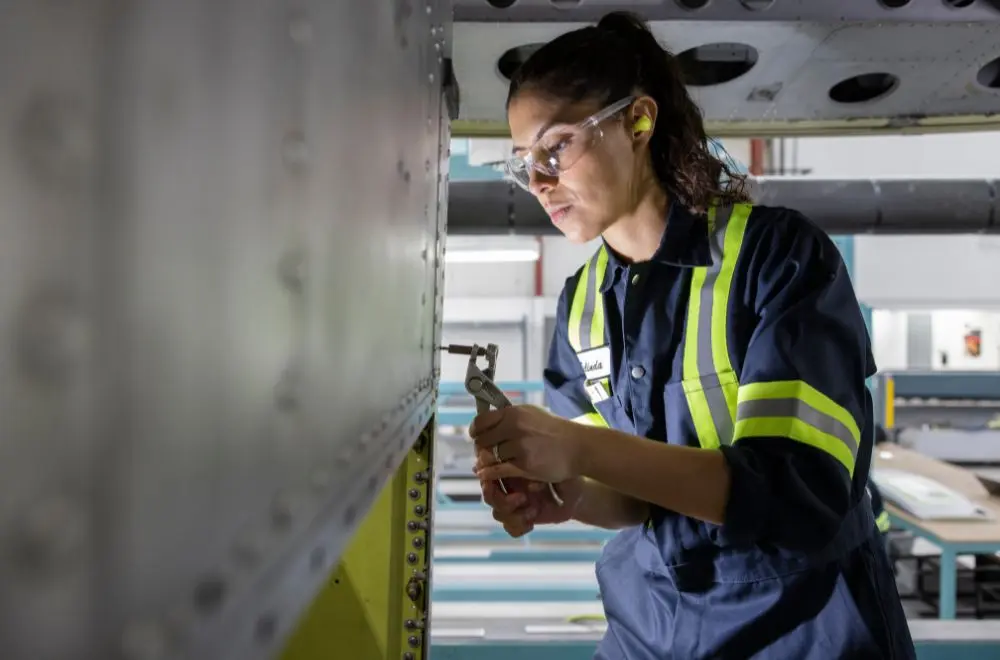
For technicians new to your fleet, this program is customized to your organization and offers both competency- and theory-based training to onboard and equip new technicians with the skills to succeed.
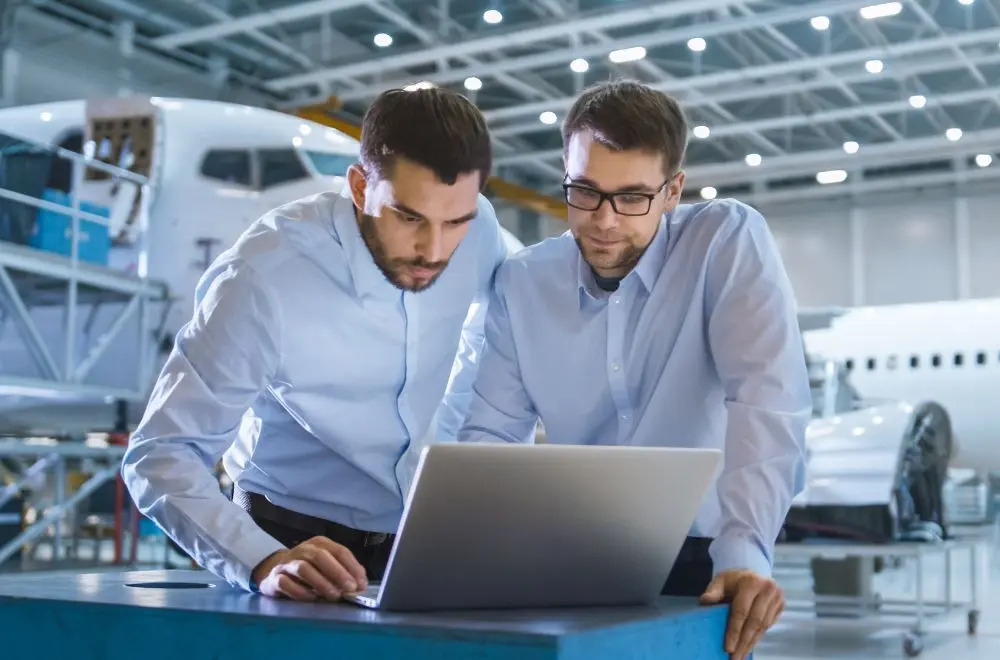
For technicians looking to perform better and prepare for positions of greater responsibility, this program includes leadership, management and communications courses.
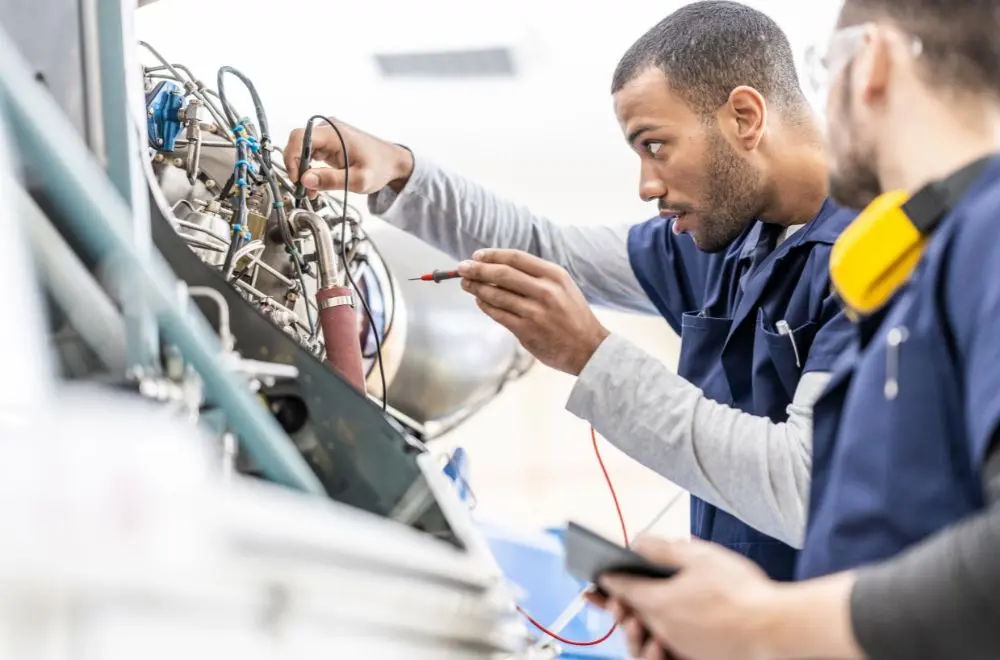
From Avionics Essentials to Practical Aircraft Wiring, our specialty programs offer broad application, preparing technicians to keep the fleet ready to travel.
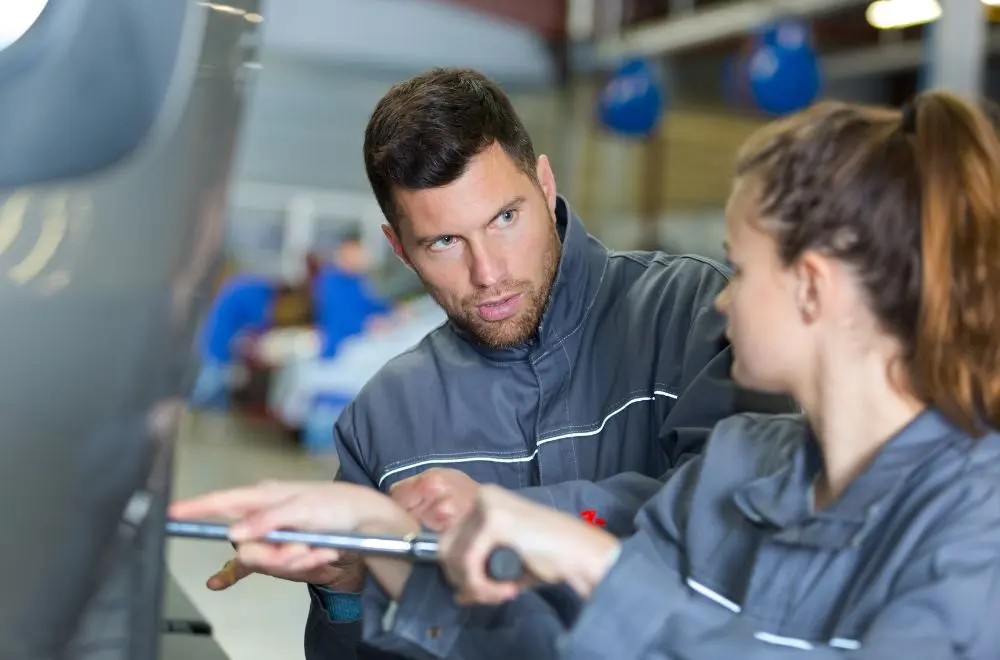
For technicians who demonstrate advanced levels of proficiency and expertise, this program is designed to further elevate their theoretical and practical skills, while keeping their certifications up to date.

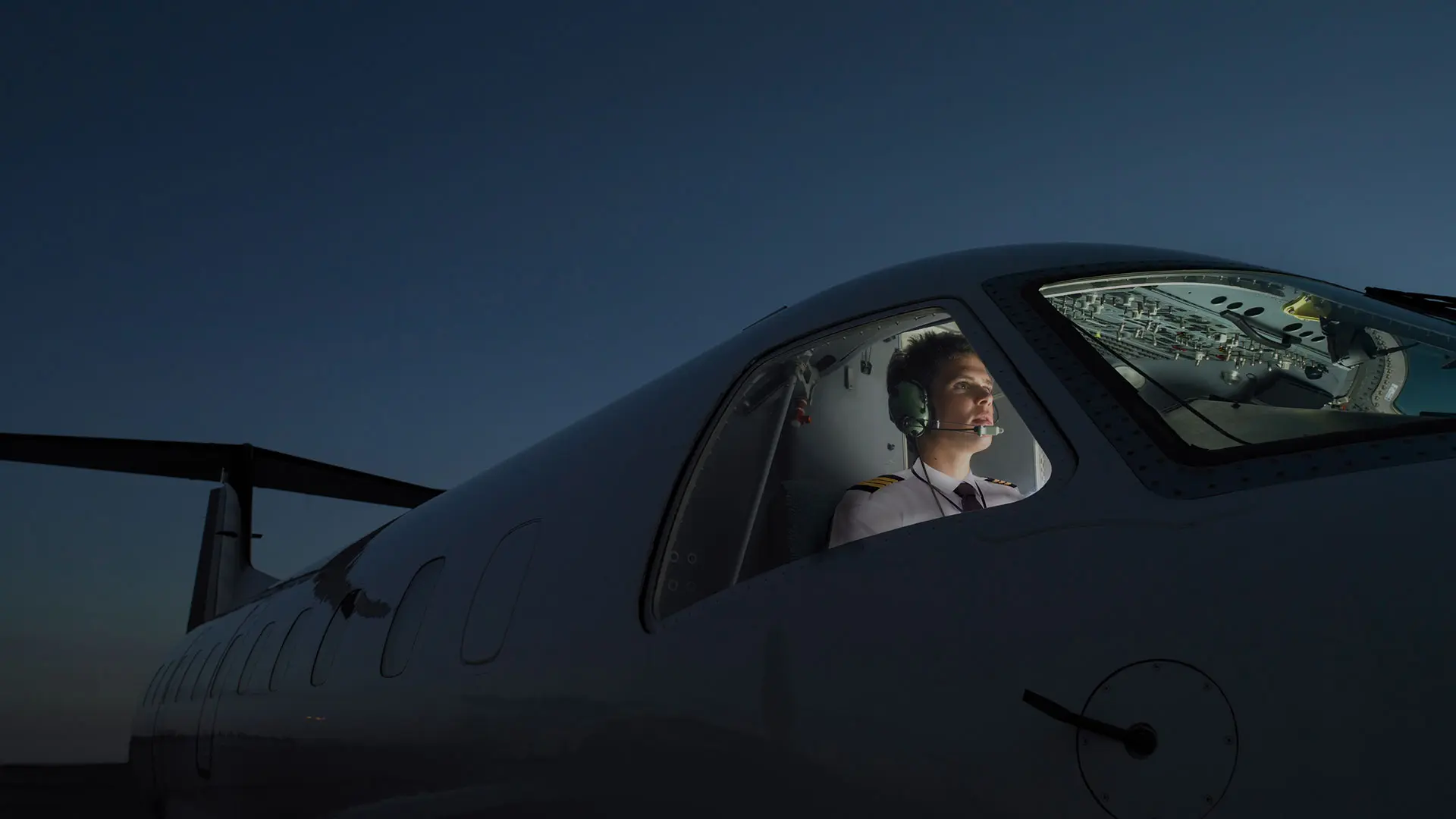
At CAE, we enhance your team’s performance and the safety of your operation. Through our immersive training solutions and experiences, we help your team build the necessary skills to take safer actions and make better decisions—faster.
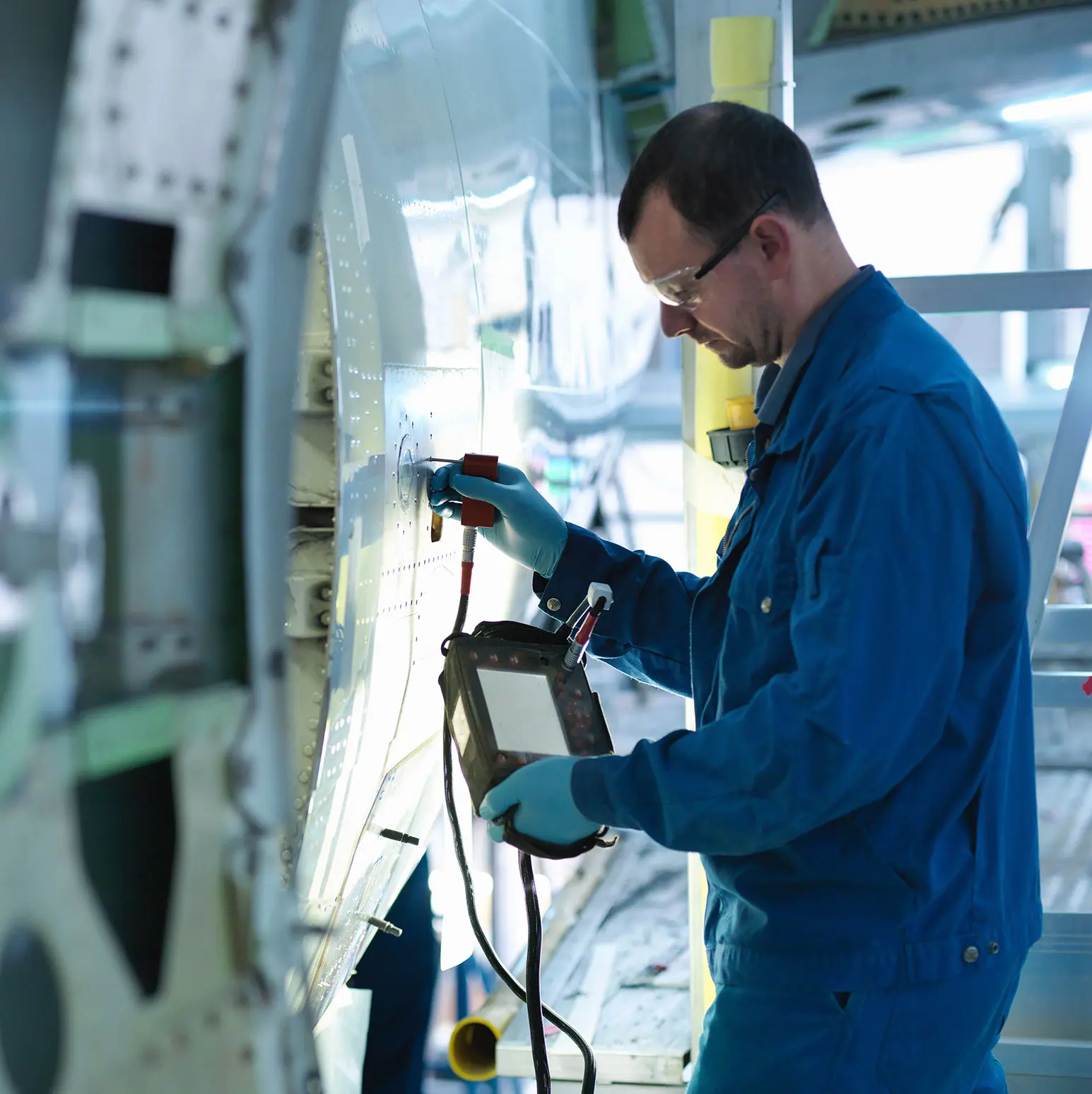
Proper aircraft maintenance is vital to ensure the safety of air travel and you can look to us for flexible, relevant, and leading-edge commercial aircraft maintenance training solutions.
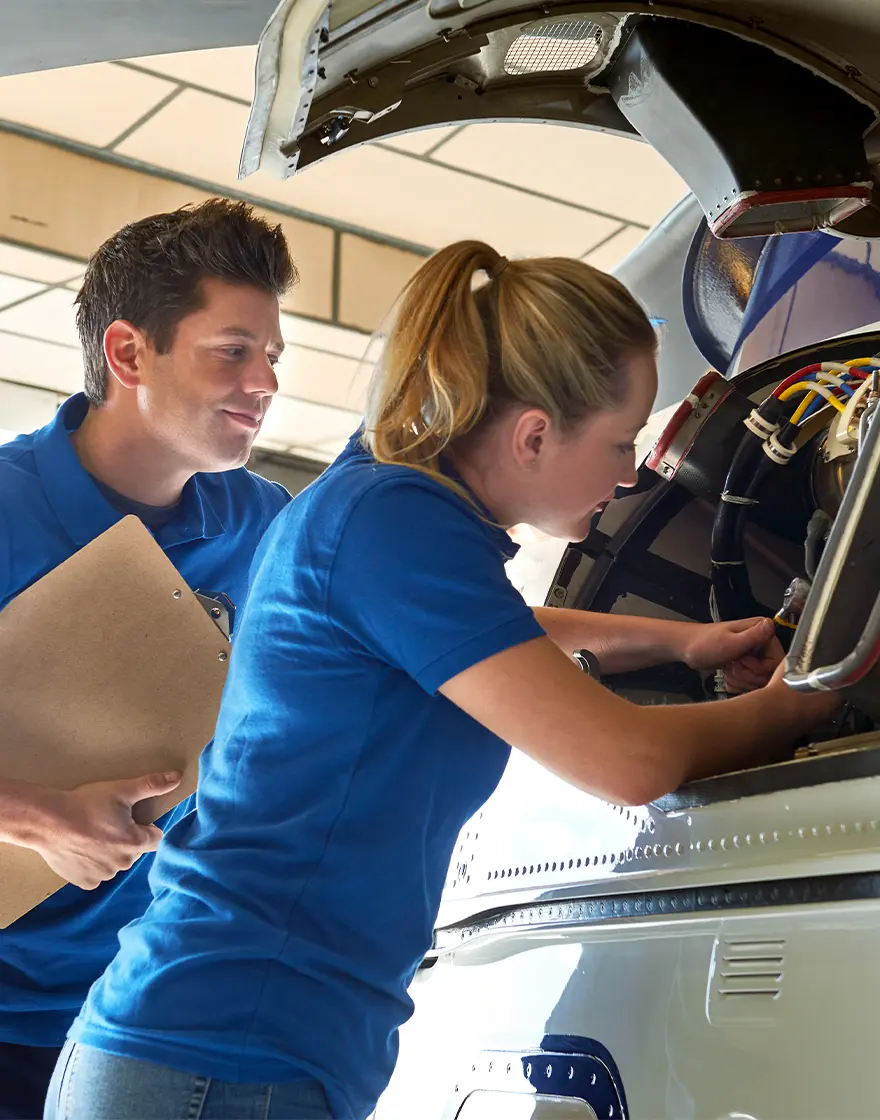
Proper helicopter aircraft maintenance is vital to ensure the safety of air travel and you can look to us for flexible, relevant, and leading-edge helicopter maintenance training solutions.
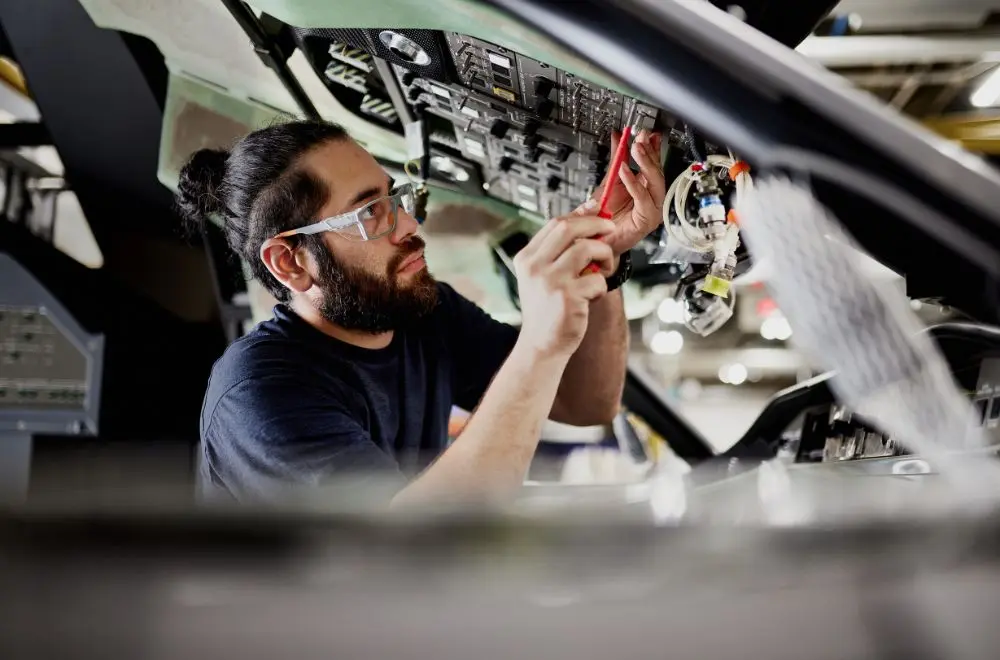
We have opportunities within aircraft maintenance ranging from senior level Line Maintenance Managers and Station Managers, to B1 and B2 Licensed Engineers, Aircraft and Avionics Mechanics and Sheet Metal Workers.